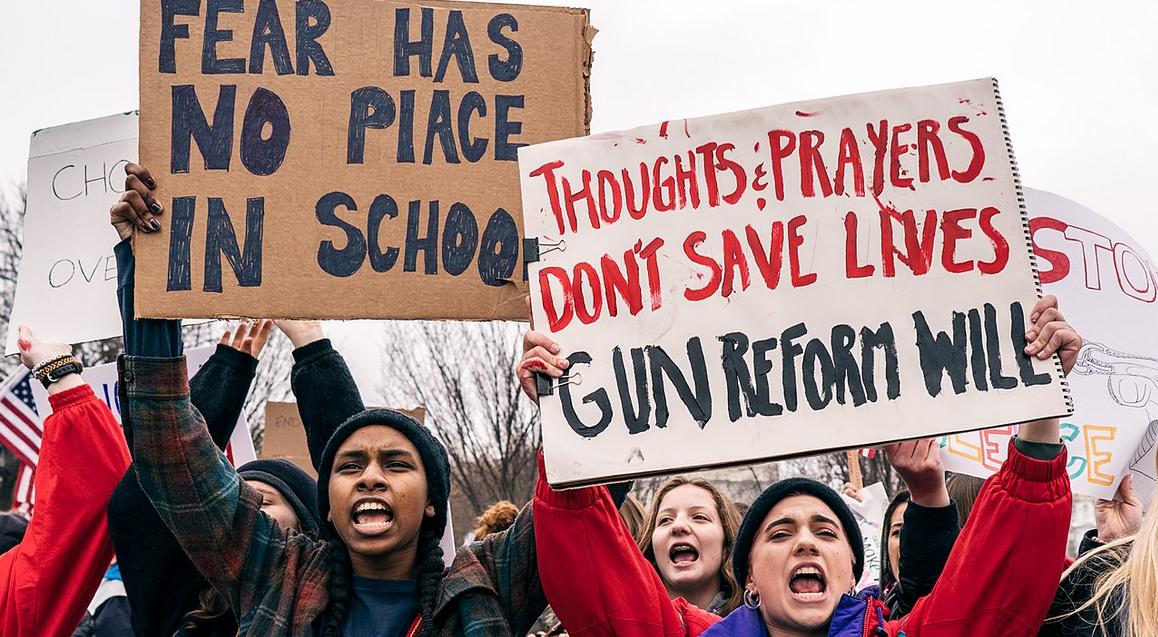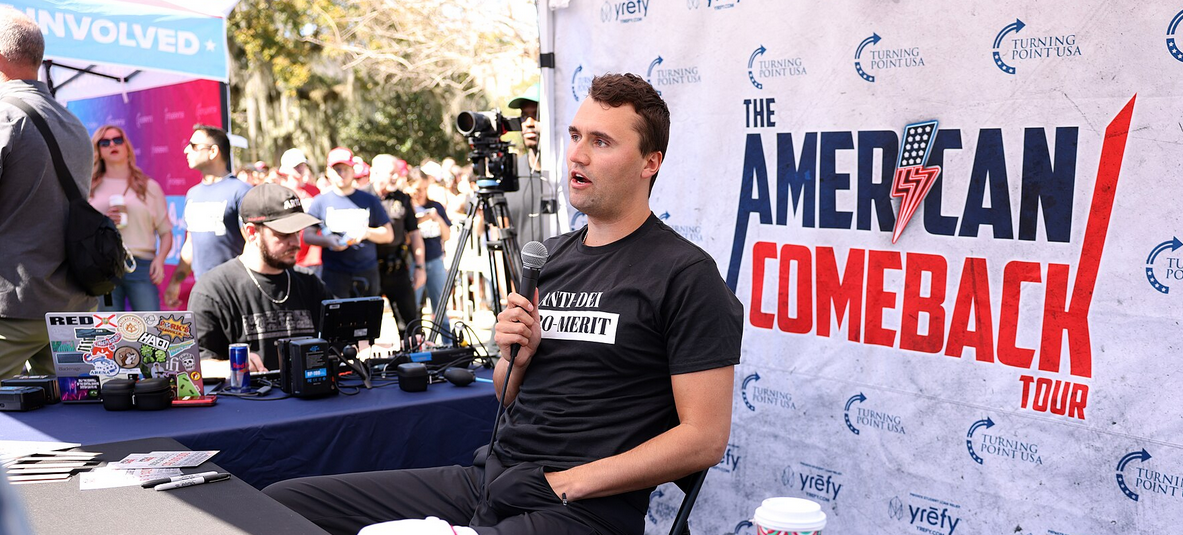By Rob Okun
Photos: YouTube Screenshots\Wikimedia Commons
How many ears must one man have
Before he can hear people cry?
How many deaths will it take ’til he knows
that too many people have died?
—Bob Dylan, “Blowin’ in the Wind”
It’s been six years since the Valentine’s Day massacre of 14 students and three teachers at Marjory Stoneman Douglas High School in Parkland, Florida, and gun violence remains as virulent a disease as ever, with regular new outbreaks in states across the country.

In 2023, there were twice as many mass shootings as there were days in the year. According to the Gun Violence Archive, in just the first six weeks of this year there were 42 mass shootings in which 74 people were murdered, and another 126 were injured. Those statistics, as of February 11, almost certainly will have gone up by the time you read this. (The archive defines a mass shootings as when four or more people are shot.)
In September, president Biden established the White House Office of Gun Violence Prevention to help reduce the nation’sepidemic of gun violence. Nevertheless, the killings continue. “After every mass shooting, we hear a simple message,” the president said. ‘Do something! Do something!’’’
Don’t count on Congress to do anything anytime soon.
Despite the National Rifle Association’s fall from grace—and its former long serving CEO, Wayne LaPierre, on trial on for corruption charges—support for gun ownership remains strong. Indicted former president Donald Trump said last week that if elected, he would undo every executive action President Biden enacted.
Describing himself as “The best friend gun owners have ever had in the White House,” Trump promised that citizens’ “Second Amendment [rights] will always be safe with me as your president.”
Mass shootings have killed 3,000 people since 2006, according to an ongoing survey conducted by USA Today and the Associated Press, in collaboration with Northeastern University. Still, the debate about the ongoing gun violence emergency waxes and wanes, flaring after the latest shooting, “dying” down as the last candle at memorials to the murdered, flickers and goes dark.
Also obscured in this urgent national conversation is an aspect that should be in the spotlight: the gender of the shooter. When will both the media and political leaders start making that undeniable fact central to the debate? The shooters are nearly always men and are usually white.
While the mental health of the shooters sometimes does play a role in their murderous acts, it’s a copout to claim that’s the primary trigger for their aberrant behavior. Better to look at how boys and young men are socialized, too many of whom are taught to believe that admitting feeling vulnerable, lonely, scared, and sad, makes them less of a man. Think back to middle school and high school and you’ll undoubtedly be able to recall at least one alienated loner, often bullied, with few resources to assist him.
For years, I have been calling for the Centers for Disease Control (CDC), to be authorized by Congress to conduct a study of how we raise boys, beginning in preschool. Hopefully, in 2025 there will be a Congress willing to consider the proposal.
Like many debates about social conditions in the US, too many men remain silent, rarely weighing in, whether the issue is mass shootings, women’s reproductive rights, or the climate emergency. What if, in this critically important election year, men organized themselves as men to speak out?
The 25th anniversary of the Columbine High School mass shootings is on April 20th. Imagine what it would mean if men organized a Million Men’s March Against Gun Violence! That could be just the beginning.
Just as Taylor Swift is influencing young women with support for progressive causes, imagine if her partner, Super Bowl-winning tight end Travis Kelce of the Kansas City Chiefs, begins speaking out about gun violence, reproductive rights, the climate crisis, and the presidential election. The potential impact he could have on men cannot be overstated.
The MAGA movement has not shied away from expressing its fear of Swift’s cultural power in this volatile political moment. If Kelce joins her, more men may begin to move from the cultural sidelines into the political endzone.

Rob Okun ([email protected]) syndicated by PeaceVoice, is editor emeritus of Voice Male magazine, chronicling the antisexist men’s movement for more than 30 years.








